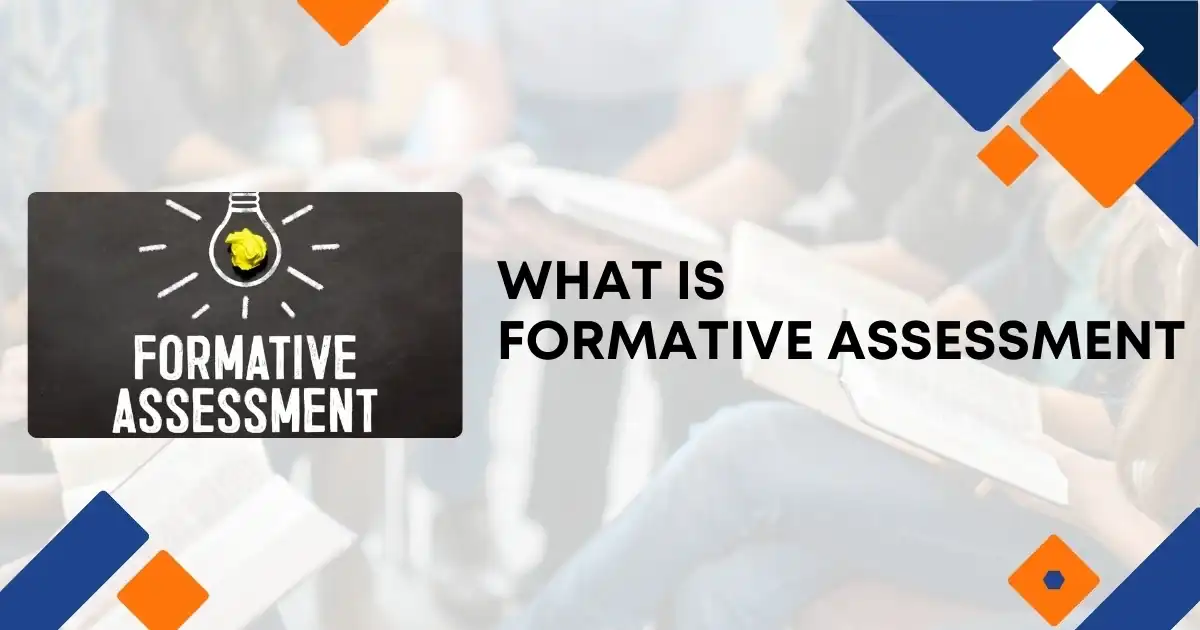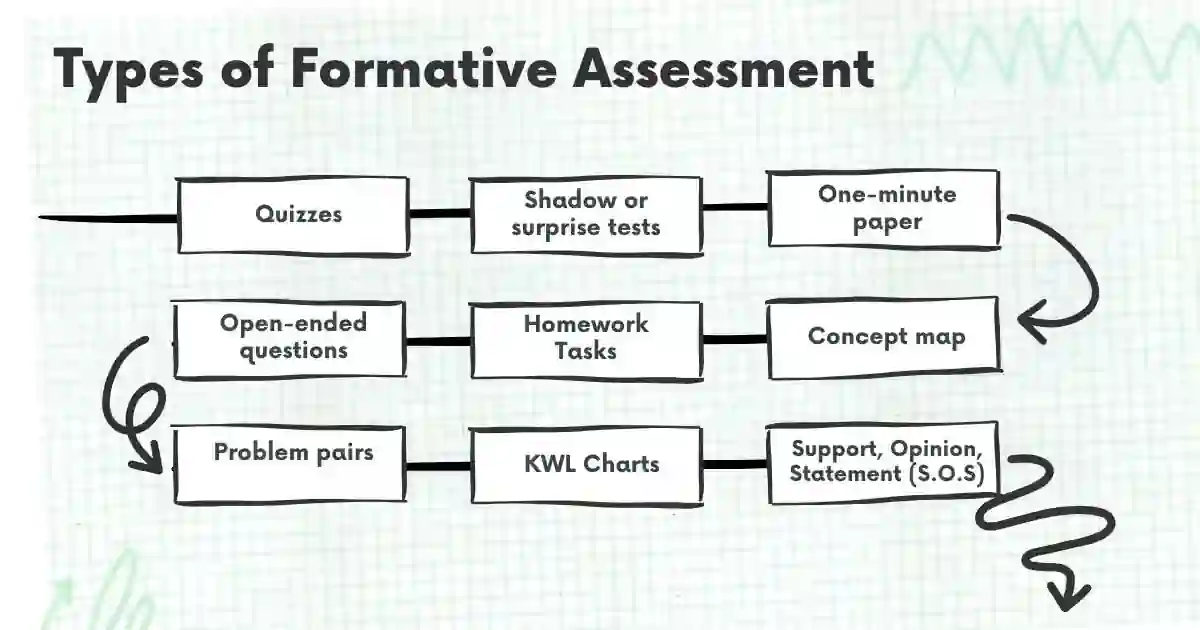How to download IGNOU assignment?
IGNOU assignments have been an important part of the educational process of a student, and it is necessary to learn how ...

In education, formative assessment can be defined as the planned, systematic, ongoing process that students and teachers engage in during the learning-teaching process to gather and use specific information concerning students’ learning to promote students’ understanding of learning intents and goals in the disciplinary context and to foster students’ self-assessment as learners. In this blog, you will further understand the true meaning of formative assessment, and what it can offer you, also you will gain the knowledge of the benefits that formative assessment is going to provide us.
Formative assessment is a Planned, ongoing process. Formative assessment is a set of practices, methods, and tools shared and chosen for achieving high learning aims by every learner. As with any form of assessment, teachers and students work together in ways that respond proactively to this type to benefit learners and learning. They work collectively to, identify, understand, and address strengths, interests, and requirements.
For Every learner and facilitator during a learning-teaching process: Formative assessment is an ongoing evolving process for learning with students not teaching them. Even students don't know the Difference Between Summative Assessment and Formative Assessment.
Get and use clients’ examples of learning: Embedded assessment forms document learning progress at specific points of the learning continuum to inform teachers and students about shifts in learning trajectories for making small, timely, effective choices regarding well-being, learning objectives, and efficacy. Students should be assessed more frequently in the practice phases of learning using the formative assessment evidence; the formative assessment scores cannot be used for grading or placement purposes.
Support students in making them self-directed learners: This type of assessment allows students to enter the learning process and learning environments, bringing in learning and agency in learning processes and learning environments and beyond. One way to do this is to involve students in goal setting.
Very often, little is needed to launch the formative assessment processes since they can be initiated in different ways. While the five practices need to be integrated into cycles of responsive teaching and learning, they do not describe specific programs, supplies, or resources à la Greenwood et al.’s Compendium of Research.
Determining learning objectives and outcomes within a spectrum of comprehension. Students should have context for what they’re learning, which could include why they’re learning it, how it links to the past lessons and them as learners, and what success will look like. It is quite proactive to have goal clarity, purpose, and direction with which the student motivates and takes personal responsibility.
The process of navigating, drawing out, and evaluating information from students. Saying it out differently, an efficient process involves having a full understanding of the learning goals, followed by taking, interpreting, and evaluating evidence of learning goals.
Carrying out self-evaluation and peer evaluation: Such an assessment form is more than merely handing an educational comment from the teacher to the student. As I mentioned in a previous post “The importance of student self–assessment,” self–assessment means that students participate in their learning process. It should also require students to work with each other, ask questions, make observations, congratulate each other for achievements, and make recommendations in ways that would enable them to achieve demanding learning outcomes.
Using actionable feedback: Iridescent, once learning evidence is collected teachers engage students and fit it into their schedules making sure they have adequate time and identified processes to use feedback constructively to progress with their learning.
The second way is responding by modifying learning behaviors or capabilities to proceed with instructional steps. This, in effect, is the “why” of formative assessment. To make the process effective, we need to work with students to use evidence and insights to guide learners toward achieving common and personal near-term and long-term goals.
Here are some of the benefits that students and tutors gain while selecting the formative assessment.
Defines Learning Goals: Its importance stems from the fact that it enables students to progress towards specified learning outcomes and facilitates the detection of dilemmas that may lead the students astray before they get off track.
Learning experiences as individuals: The skill in the use of formative assessment information enables the educator to look at the methods and modify them to produce the intended results for the learners through the multiple differentiation approach. This is particularly useful with large clientele practitioners within class settings because it is one thing for something to work with some students and another thing entirely when it does not work with others.
Increases Rigor: Such formative assessment data can assist teachers in identifying the students better than traditional classroom instructions. With that information, we as educators can come up with a higher learning environment that will really push the students and also assist them in achievement.
Data-Driven Decisions: Information obtained from formative assessment enables teachers to make better judgments when handling their duties or interacting with their students about content matters. By making such decisions based on these data analyses, it might thus be possible to ensure improved student outcomes.
Focused and Targeted Feedback: Implementation assessments can be an effective way of approaching and providing your students with focused and highly specific feedback that informs you of how effectively any developed knowledge is being infused and applied to instruction. It also contributes to the construction of a more cooperative process as far as the exchange of knowledge between teachers and students is concerned.
Increases Student Engagement: Students’ involvement is one of the components that contribute to different classroom activities, and, therefore, formative assessments aid in raising such involvement. Embedding learning objectives into actual life scenarios and issues also assists in catering to what feeds the curiosity of the students.

Formative assessment has different types for checking on the students' learning. This covers every aspect of their learning process and the current knowledge of the student. The most recent and reliable information regarding students' learning can be gained from formative assessment only. Feedback and self-realization students get from these types help them understand the area where they need to focus more.
These types can be used by your tutor according to their preferences, there are no such conditions that, this type must be used in this sense only or in any other condition.
These are the most effective types of formative assessment:
Quizzes
Shadow or surprise tests
One-minute paper
Open-ended questions
Homework Tasks
Concept map
Problem pairs
KWL Charts
Support, Opinion, Statement (S.O.S)
In conclusion, formative assessment is best when it comes to getting feedback on your learning process and even helps students achieve self-realization. Formative assessment gives students a chance to grow and focus on areas in which they are weak. As formative assessment is conducted while the learning process is going on.
This is not like summative assessment which is usually conducted at the end of your learning process. This blog even covered various benefits that are provided to students. This even provides you with focused and targeted feedback, which increases student engagement as well. You must also learn about the different types of formative assessment.
You can use formative assessment for your self-evaluation, by taking self-tests, quizzes, and many other ways. Through all these, you can check what are the areas in which you are weak and what are the areas in which you are strong.
The four main types that are mostly used by all the tutors and universities are Quizzes, Assignments, KWL charts, and S.O.S. (Statements, opinions, support).
Formative assessments are the ones that are conducted during the learning process, whereas when it comes to summative assessments it is conducted at the end of your learning process.
Any other way for self-analyzing the learning process will also come in formative assessment only. The main purpose of formative assessment is to provide students with regular feedback and to check how their learning process is going.
Let's Book Your Work with Our Expert and Get High-Quality Content

Loved reading this Blog? Share your valuable thoughts in the comment section.
Add comment